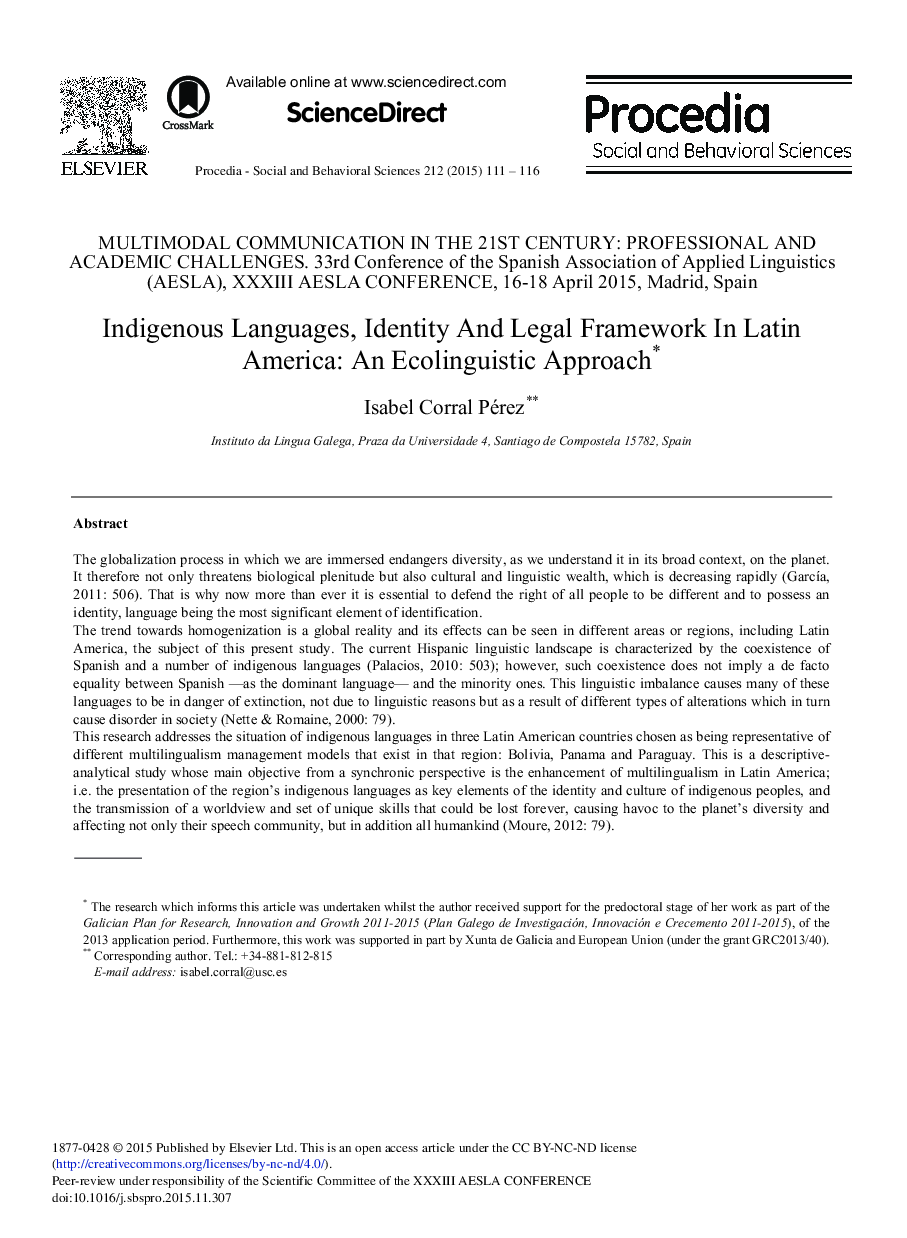| Article ID | Journal | Published Year | Pages | File Type |
|---|---|---|---|---|
| 1109619 | Procedia - Social and Behavioral Sciences | 2015 | 6 Pages |
The globalization process in which we are immersed endangers diversity, as we understand it in its broad context, on the planet. It therefore not only threatens biological plenitude but also cultural and linguistic wealth, which is decreasing rapidly (García, 2011: 506). That is why now more than ever it is essential to defend the right of all people to be different and to possess an identity, language being the most significant element of identification.The trend towards homogenization is a global reality and its effects can be seen in different areas or regions, including Latin America, the subject of this present study. The current Hispanic linguistic landscape is characterized by the coexistence of Spanish and a number of indigenous languages (Palacios, 2010, : 503); however, such coexistence does not imply a de facto equality between Spanish —as the dominant language— and the minority ones. This linguistic imbalance causes many of these languages to be in danger of extinction, not due to linguistic reasons but as a result of different types of alterations which in turn cause disorder in society (Nette & Romaine, 2000: 79).This research addresses the situation of indigenous languages in three Latin American countries chosen as being representative of different multilingualism management models that exist in that region: Bolivia, Panama and Paraguay. This is a descriptive-analytical study whose main objective from a synchronic perspective is the enhancement of multilingualism in Latin America; i.e. the presentation of the region's indigenous languages as key elements of the identity and culture of indigenous peoples, and the transmission of a worldview and set of unique skills that could be lost forever, causing havoc to the planet's diversity and affecting not only their speech community, but in addition all humankind (Moure, 2012: 79).To achieve this objective, a comparative study of the legal framework of indigenous languages and their current sociolinguistic situation will be carried out, on the premise that the recognition of minority linguistic rights is the first step towards the preservation of multilingualism both in Latin America and at a global level, which implies the preservation and development by minorities of their own, genuine ways of understanding and communicating their reality.
